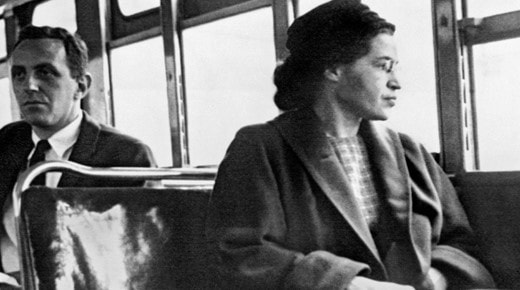|
This time last year, in the autumn of 2019, some children and young people were opting to be out of school, on the streets, making a noise and voicing their concerns for climate action. Contrast this autumn: children and young people are back in school following on from the first Covid-19 ‘lockdown’. And they are very quiet.
There has been an understandable, and pressing, national imperative to ensure children are in school to accrue the socialisation and learning benefits this offers them. But there appears to be a renewed unquestioned emphasis on conforming and regulatory practices that mask what students have to say and need to communicate. As pupils, they are back sitting in rows in class; facing the front; listening to what the teacher has to impart; mindful of strictures about what behaviours are considered acceptable, cognisant of sanctions and punishments if these are flouted. While such measures may help to protect students from the Covid-19 virus, there is the danger that they also shield them from engaging with pressing complexities and uncertainties in their immediate lives and beyond. Such matters include living with Covid-19 and its attendant everyday hardships for many families; the issues of race inequity thrown up by campaigns highlighting Black Lives Matter; and the ongoing global crisis of sustainable biodiversity and of climate change. Yuval Noah Harari (author of Sapiens and Home Deus) raises concerns about the normalisation of surveillance within society, including within the institution of the school, during Covid-19, describing this moment as a ‘major test of citizenship’. In schools, surveillance technologies and practices long pre-date the current pandemic however. A teacher explained to us that children are taught that ‘it’s never okay to say No to an adult’, for example. Student movement is so tightly monitored in school (including technologies such as CCTV), that the academic, Andrew Hope, warned of an increasing surveillance acceptance and tolerance, with schools increasingly becoming laboratories for ‘surveillance futures’. Schooling only for conformity is never sufficient within a system with democratic ideals. Gert Biesta, the educational philosopher, illustrates this using the example of Rosa Parks and Adolf Eichman. Both learned to attend to and to listen well to the expectations of their day encoded within public institutional practices. Each made very different choices, however. Parks knew that it was considered unacceptable for people of colour to choose where to sit on a public bus, but still she rejected the bus driver’s order when told where to sit. Eichman, the Nazi SS commander responsible for managing the mass deportation of Jews to extermination camps, claimed in his defence that he was doing as he was told. From a humane and existential perspective, being socialised into learning only ever to conform requires constant scrutiny and challenge. There are many internal and external influences on why humans might act as they do, but a key focus for educators, says Biesta, is to encourage the ‘I’ to be able to step forward and to be out of line. Rosa Parks’s ‘I’ stepped forward, enabling her to say ‘No’, whereas Eichmann withdrew his ‘I’, claiming ‘It wasn’t me, I just followed orders’. One test of democratic citizenship for schools is whether there exists the agreed and accepted opportunity for pupils to say ‘No’ and to act otherwise. This is not about the granting of a freedom to do simply whatever they might want, but about the opportunity to make decisions about how to be, rather than yielding to many internal and external forces and routinised expectations. The role for education and educators is to remind students of their citizenship and to support them in finding out how they might exist in the world, alongside other humans and in balance with animals and plants. This requires opportunities to examine, discuss, question, feel and deliberate difficult questions which assume ongoing exploration and contestation, where the teacher should not be placed in a position of feeling she must have an answer, and the ‘right’ one at that. In the same way that biodiversity allows for the resilience of individual plant species to thrive, a diversity of experiences and perspectives is important for any human community to buffer itself from threats and to reorganise itself in response to the uncertainties of change. During the Second World War, the citizens of Denmark were unique amongst all European countries for openly speaking out against Nazism. For those Germans living in Denmark, the exposure to mass local resistance resulted in them sabotaging central orders, and acting otherwise, helping to ensure the large majority of resident Jews in Denmark survived the war (See the work of Hanna Arendt for a detail description of this). Today’s complex and challenging issues for children and young people, whether in school, at home or out and about in their wider worlds, involve them, with others, in making difficult decisions in relation to the current pandemic, Black Lives Matter and the climatic threat to the planet. Many young people feel that taking on the viewpoints of others and always doing what is expected will be insufficient when future generations asks: ‘. . . what did you do?’ They are exploring other ways to exist in the world, but often alone without the support of adults. Schools are the public institution that can and should provide that support as imperative of a democracy: ‘[My parents] think that me getting this day of education will be more important than making a stand against the systematic oppression that is happening… I think it’s really important to do this because if we are successful and, say, however many years in the future I have all these amazing stories to tell my grandchildren about what I did to help.’ (Mickey, school climate striker, age 17; cited in research by Benjamin Bowman) In a recent blog for Sussex Bylines, we expand on some of the issues explored here: Let the children speak
0 Comments
|
AuthorPerpetua Kirby & Rebecca Webb Archives
November 2023
Categories |

 RSS Feed
RSS Feed